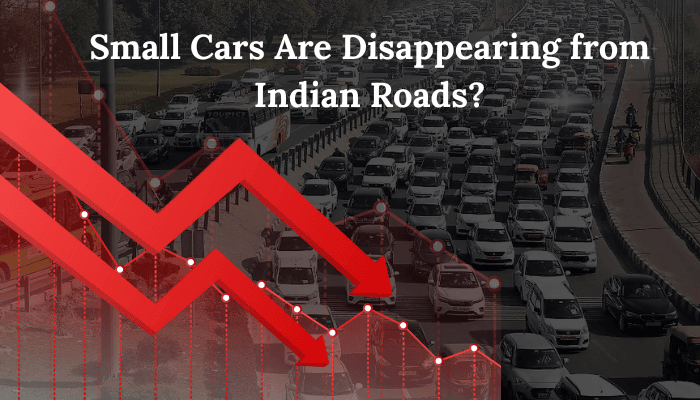The Indian electric vehicle (EV) market is witnessing a massive transformation, with global automakers like Volkswagen Group aggressively investing in sustainable mobility. One of the latest developments comes from Skoda Auto, a subsidiary of the Volkswagen Group, which has announced plans to manufacture electric vehicles in India. This move is significant, considering Skoda’s ongoing $1.4 billion tax dispute with Indian authorities over the alleged misclassification of imported cars.
Despite these hurdles, Skoda remains committed to India’s growing EV sector, aiming to leverage Volkswagen’s EV technology to meet the country’s 2027 fuel efficiency standards. But what does this mean for India’s automotive industry? Will Skoda’s entry into the EV segment be a game-changer? Let’s explore.
Read more: Top 10 Best-Selling Affordable Sedans in India – Price, Mileage & Features
Why is Skoda Investing in Indian EV Manufacturing?
1. India’s Booming EV Market
India is one of the fastest-growing EV markets in the world, driven by government incentives, environmental concerns, and rising fuel prices. The Indian government has set ambitious goals, including:
- Achieving 30% EV penetration by 2030.
- Strengthening local manufacturing through the Production-Linked Incentive (PLI) scheme.
- Reducing dependency on fossil fuels and cutting carbon emissions.
With competitors like Tata Motors, Mahindra, and MG Motors already making strides in the EV space, Skoda’s entry marks a crucial shift in the competition.
2. Leveraging Volkswagen’s EV Technology
Skoda plans to use Volkswagen’s Modular Electric Drive Matrix (MEB) platform, which is already successful in global markets. Volkswagen has been aggressively expanding its EV portfolio, and Skoda’s expertise in affordable, high-quality cars could help make EVs more accessible to Indian consumers.
3. Meeting India’s 2027 Fuel Efficiency Standards
India is set to introduce stricter fuel efficiency regulations in 2027, which will make it difficult for car manufacturers relying solely on traditional internal combustion engines (ICE). Investing in EVs is a strategic move for Skoda to stay competitive in the Indian market while ensuring compliance with future regulations.
Challenges Skoda Faces in the Indian EV Market
1. The $1.4 Billion Tax Dispute
Skoda is currently facing a major legal battle with Indian tax authorities over claims of misclassifying imported cars to reduce customs duties. This issue raises concerns about regulatory hurdles that could impact the company’s investment plans. However, Skoda has reiterated its long-term commitment to India, signaling confidence in overcoming these challenges.
2. Competition from Domestic Players
Indian companies like Tata Motors, Mahindra, and Ola Electric have established a strong foothold in the affordable EV market. With Tata Nexon EV leading sales and Mahindra’s XUV400 gaining popularity, Skoda will need a solid pricing and localization strategy to compete.
3. Lack of Charging Infrastructure
One of the biggest obstacles to EV adoption in India is the underdeveloped charging infrastructure. Although the government is working to expand EV charging stations, Skoda may have to collaborate with energy providers to ensure a smoother transition for customers.
What This Means for India’s EV Industry
1. More Choices for Indian Consumers
With Skoda joining the EV race, Indian buyers will have more premium EV options beyond existing players. This could increase competition, leading to better pricing, features, and incentives for customers.
2. Boost to ‘Make in India’ Initiative
Skoda’s plan to manufacture EVs locally aligns with the ‘Make in India’ initiative, reducing dependency on imports and boosting the local economy. More investments from global players could encourage technology transfers and job creation in the automotive sector.
3. Acceleration of EV Adoption
The entry of a well-established global brand like Skoda signals confidence in India’s EV market, which may encourage other international automakers to expand their presence in the country. This, in turn, could lead to faster EV adoption and infrastructure development.
Conclusion: Is Skoda’s EV Investment a Game Changer?
Skoda’s decision to manufacture EVs in India marks a significant milestone for both the company and the Indian automotive industry. While regulatory challenges and competition may pose hurdles, Skoda’s global expertise, Volkswagen’s EV technology, and India’s strong market potential create a promising opportunity.
If Skoda successfully localizes its EV production, offers competitive pricing, and collaborates on charging infrastructure, it could emerge as a strong competitor in India’s growing EV landscape. In the long run, this investment could reshape India’s electric mobility sector and drive a more sustainable automotive future.
Would you consider buying a Skoda EV in India? Let us know your thoughts in the comments!
Skoda’s EV plans are set to shake up the Indian market! Are you ready for the future of electric driving? Stay ahead with the latest car insights, expert tips, and industry updates—follow My Car Wisdom today!
Raja Yadav, the content writer at My Car Wisdom, brings a unique voice and style to our blog. With a knack for storytelling and a keen eye for detail, Raja ensures that every piece of content is informative, engaging, and easy to understand. His focus is on delivering high-quality articles that cater to both novice car owners and seasoned automotive enthusiasts.



